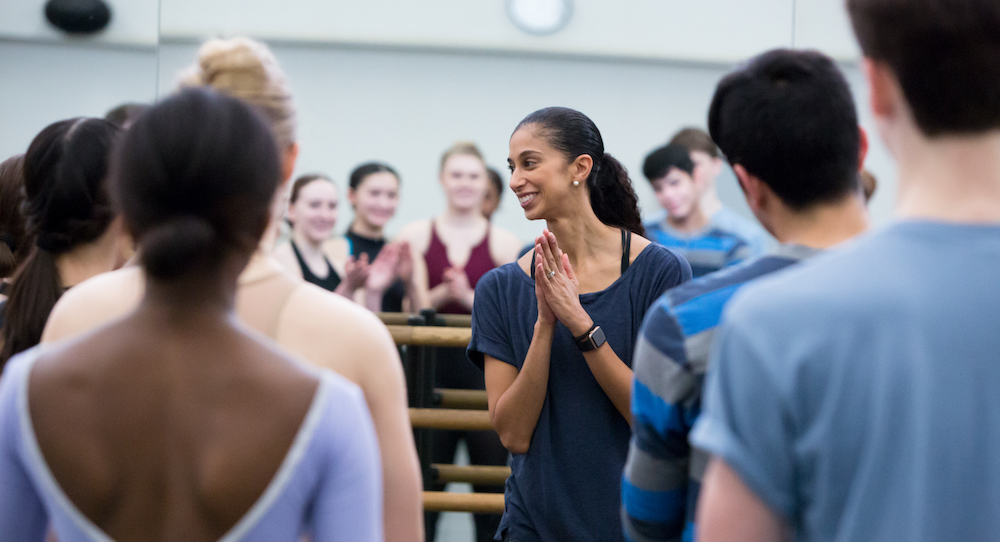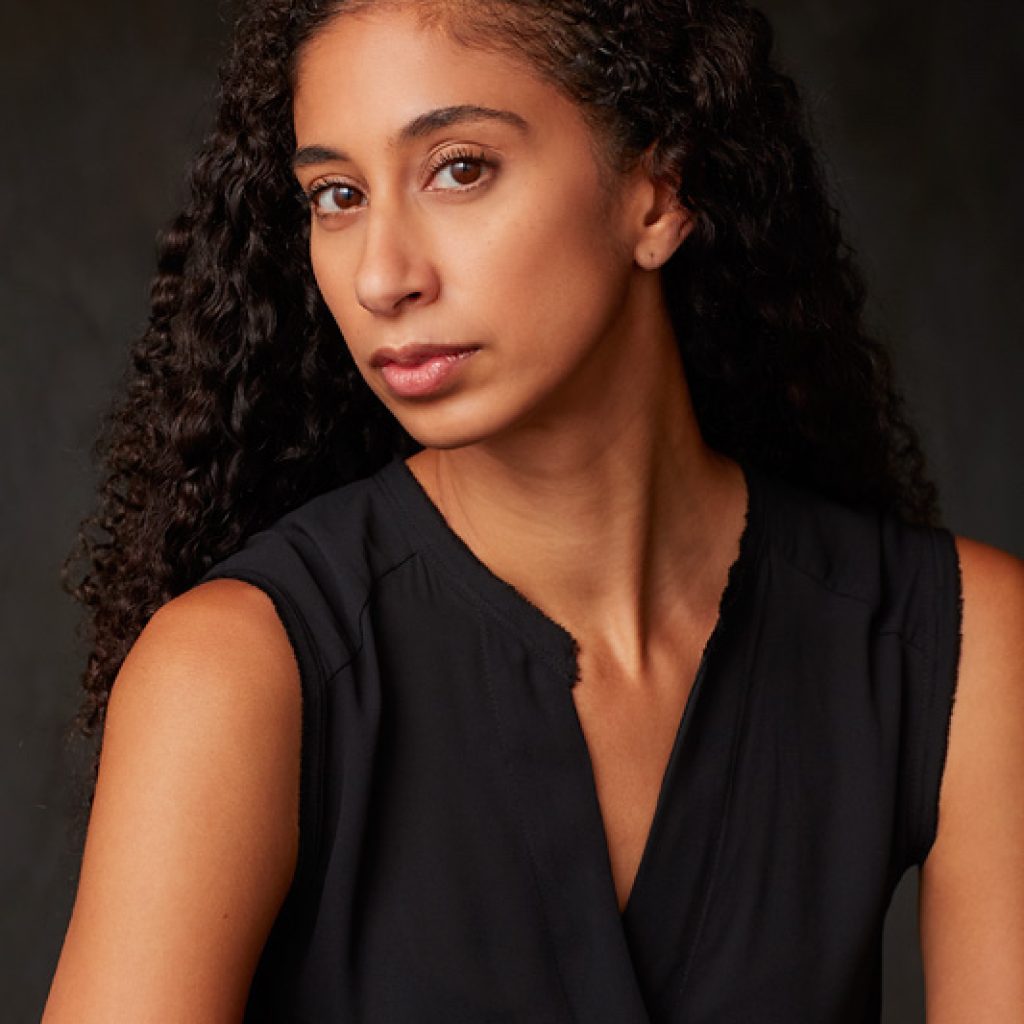There’s something spring to how a dance work comes to life. Buds pop as something gels and a choreographer exclaims “yes, that’s just it!”. Sweet flowers fully bloom as sections materialize. Before engaged artists know it, it’s summer – and a fully-alive work takes the stage. Such shifts and evolutions will certainly occur as students of Juilliard’s Dance Division, choreographers leading them, and contributing collaborators bring the conservatory’s Spring Dances 2024 to life.
In a broader sense, the Division is growing and evolving in its own way: taking thoughtful steps to open its doors to the wider public, dispelling myths about what happens under its hallowed name, refining how it prepares students for the professional dance sector and much more. To learn more about these dynamics and beyond, Dance Informa speaks with Alicia Graf Mack, the Division’s Dean and Director (and accomplished artist in her own right!).
Graf Mack: The person and artist behind the Juilliard leader
Graf Mack has an impressive resume, to say the least. She graduated magna cum laude from Columbia University and holds an MA in Nonprofit Management from Washington University in St. Louis. Her performance credits include Alvin Ailey American Dance Theater, Dance Theatre of Harlem, Complexions Contemporary Ballet, Alonzo King’s LINES Ballet, as well as for musical artists such as John Legend and Beyoncé (yes, that Beyoncé). She stepped into the role of Dean and Director of Juilliard’s Dance Division in 2018.
That’s just the beginning – and anyone can read more about her accomplishments in her biography. Who’s the person behind all of that? “The way I see the world comes from my background in a biracial home, as well my work with Alvin Ailey American Dance Theater,” Graf Mack explains. “Equity, diversity, inclusion, belonging – those values are completely integrated into every aspect of my life and leadership.”
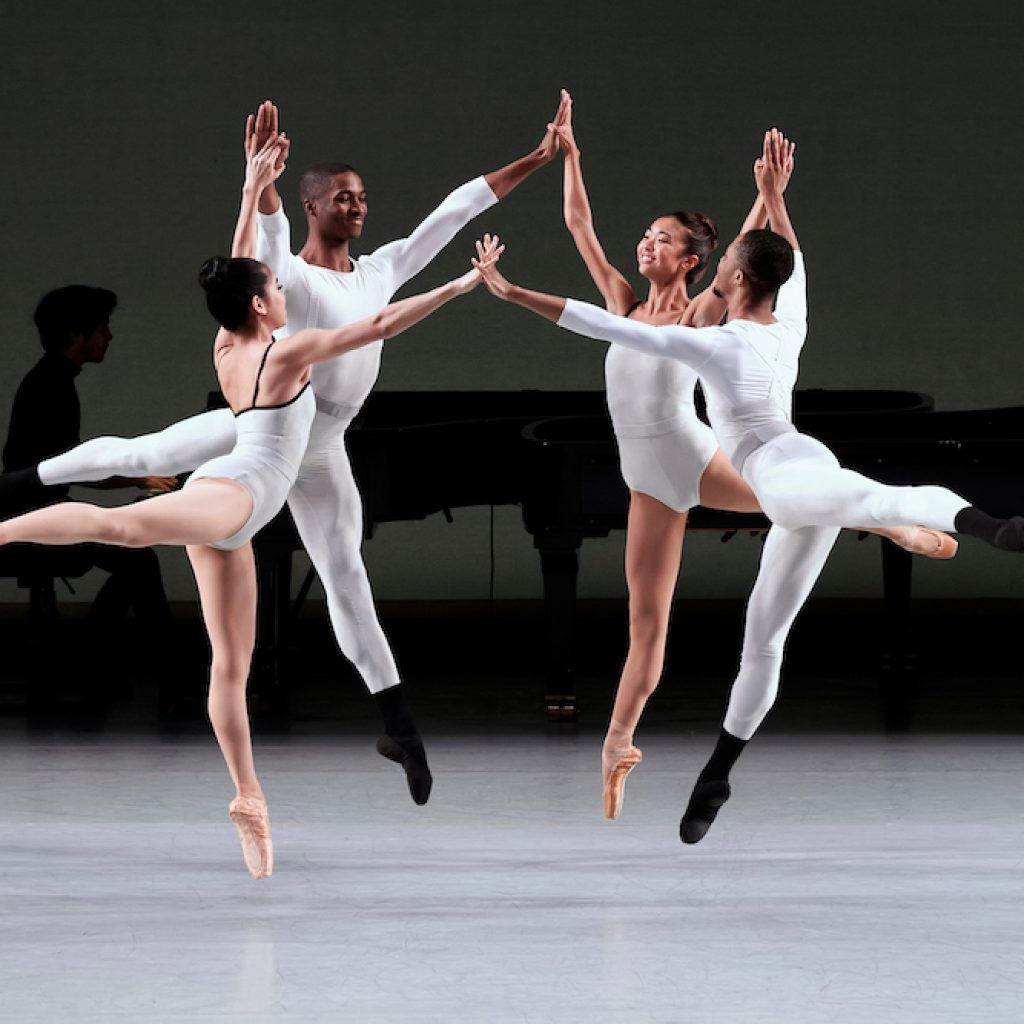
Those are key Juilliard values, as well, she affirms – and also that education is the best launching pad for instilling those values. That must come with each student feeling a sense of belonging. Artists can blossom with such a feeling; “the places where I thrived as an artist were where I felt like I could truly be myself,” Graf Mack shares.
For her, it’s vital that students feel “seen” and “cared for” – which, to her mind, is a shift in higher-education dance programs. “It’s not just about being loving and caring, but about truly involving the dancer in the direction of their own training and development,” she explains – for example, through encouraging them to ask questions and to scrutinize the status-quo.
The multifaceted, transdisciplinary Juilliard Dance Division curriculum
Graf Mack has utmost confidence that Juilliard students are up to the task of taking charge of their own growth. “The dancers who come into the program are already so talented, so curious, so hungry; we just have to set the fertile soil for them to thrive.” Key ingredients in that soil are a deep understanding of legacy and tradition, as well as rigorous training in a diversity of dance techniques and styles – from ballet to contemporary to composition, from Horton to Limón to Graham. Individual nurturance is another important ingredient in their growth, Graf Mack says. “There are more faculty members than students in each class within the division. For example, the first year class is comprised of 19 students. We really know them!”
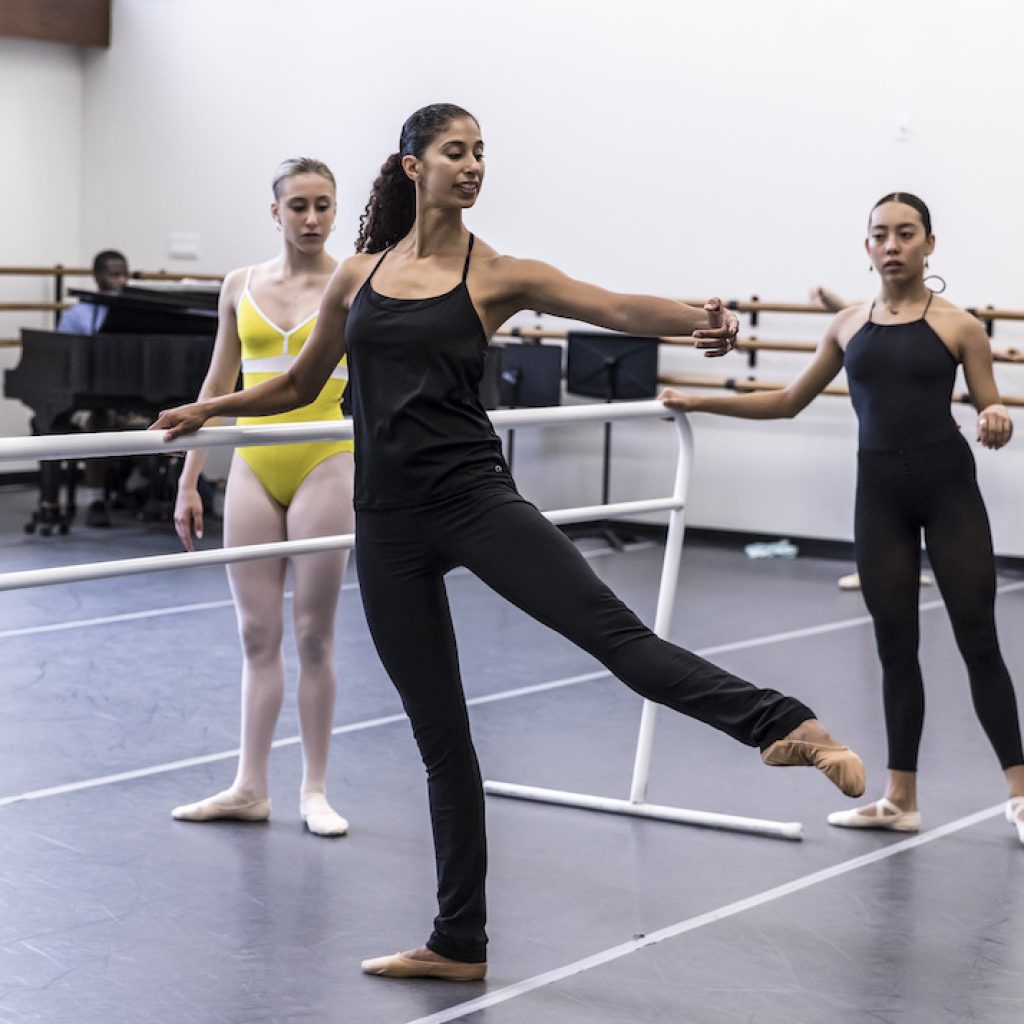
Entrepreneurship and liberal arts studies are also part of the Juilliard experience, Graf Mack notes. Dance Division students have opportunities to study voice, acting and to get a Level 1 Pilates Instruction Certificate, to boot. “I speak with the students all the time about being multi hyphenated artists – not just ballet dancers, or contemporary dancers, and not even just dancers,” Graf Mack shares. Students build the capacities to become dynamic artists with a multitude of possibilities available to them.
Beyond even that, Juilliard students get myriad opportunities to work with students in other Divisions — thus building transdisciplinary skills, as well as assembling a network of fellow artists to work with for years to come. “We’re always doing cross-divisional projects – and those relationships will last,” Graf Mack affirms. Such interdisciplinary offerings have blossomed and grown in the past six years, she explains.
Even with all of that rigor, Graf Mack believes that Dance Division students shouldn’t lose touch with simply being young and vibrant in New York City; “they should hold onto joy!” Moreover, she sees that as pivotal in the burgeoning of their artistry. “Part of the success of being a dancer is to hold on to that seed [of who you truly are] – and then have it grow, not push it down further.”
Education in action: Spring Dances 2024
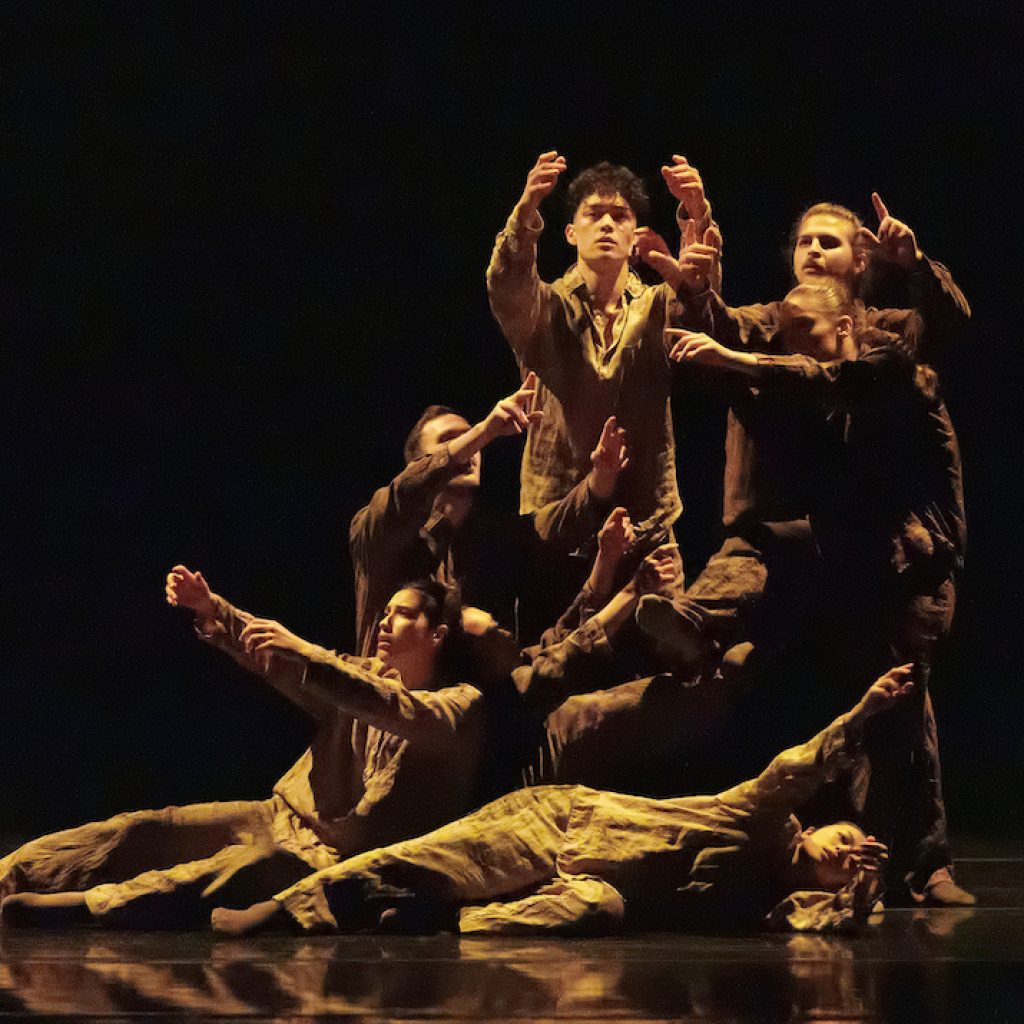
Within that environment of artistic and personal development, rehearsals for Juilliard Dance Division’s Spring Dances 2024 are underway! For the second year, the program is centered on contemporary works by living choreographers. Those works are Bobbi Jene Smith’s Fugue in Crimson (2022), Kyle Abraham’s Studies on a Farewell (2019) and Shen Wei’s Map (2005). “All three works in the program are very physical; they require a lot of stamina,” Graf Mack says. “It’s interesting to see how these choreographers are interpreting time, space and how we’re currently living in this world.”
Jene Smith is a Juilliard Dance Division alumna, as well as Guest Faculty Member. Fugue calls for “serious dance chops, as well as acting skills…there’s a real narrative there,” Graf Mack explains. For his part, Abraham has worked with Juilliard students before, and – as a key creative partner and close friend to Graf Mack – that’s always a joy, she adds. Wei’s Map will be an exhilarating challenge; it’s a 40-minute long behemoth, complete with live music (by Steve Reich and played by Juilliard Music Division students) – and this will be the first time it’s performed live.
Graf Mack is clear: this caliber of performance process is “really part of students’ success.”
She describes how “their growth is exponential in performance week, they become so much more mature!” The distinction really comes with ownership of the work they’re learning, Graf Mack says.
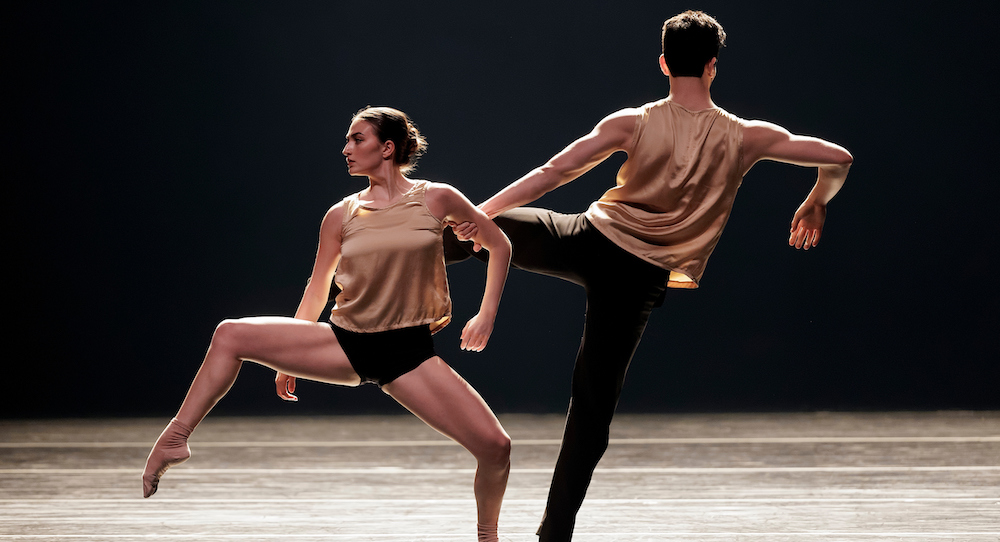
“That’s where artistry comes in: interpreting and researching – even if that’s embodied research – in order to really step into the work. One of my greatest privileges is to see dancers go from learning what a work is to really seeing them take ownership.” Their Juilliard studies, the diversity and rigor of their classes, are an essential foundation for that success and growth, she adds. Far beyond Juilliard, that’s how the field moves forward – the next generation both innovating and preserving, Graf Mack believes.
Students moving up and out: Life and work after Juilliard
She sees the “fruits” of all the above – the rigor of their studies, the nurturance of the artist and human in each student, the intensive and transdisciplinary performance opportunities – in the Division’s fourth-year students. That’s their “onboarding” year, she explains. In other words, when they shift from students to dance sector professionals. “Students now have more flexibility to audition and take company class,” she explains.
Beyond even permitting such professional world engagement, the Dance Division assists its fourth-year students in experiencing it. For example, one student is deeply inspired by Trisha Brown’s work and legacy, and the Division is working to get her into company class with the Trisha Brown Dance Company. “I’m always looking for more ways for our students to integrate with the field. We’re well positioned for that, being in NYC,” Graf Mack notes. Yet other students were able to tour with Justin Peck, after they caught his eye when working with him for a Division concert.
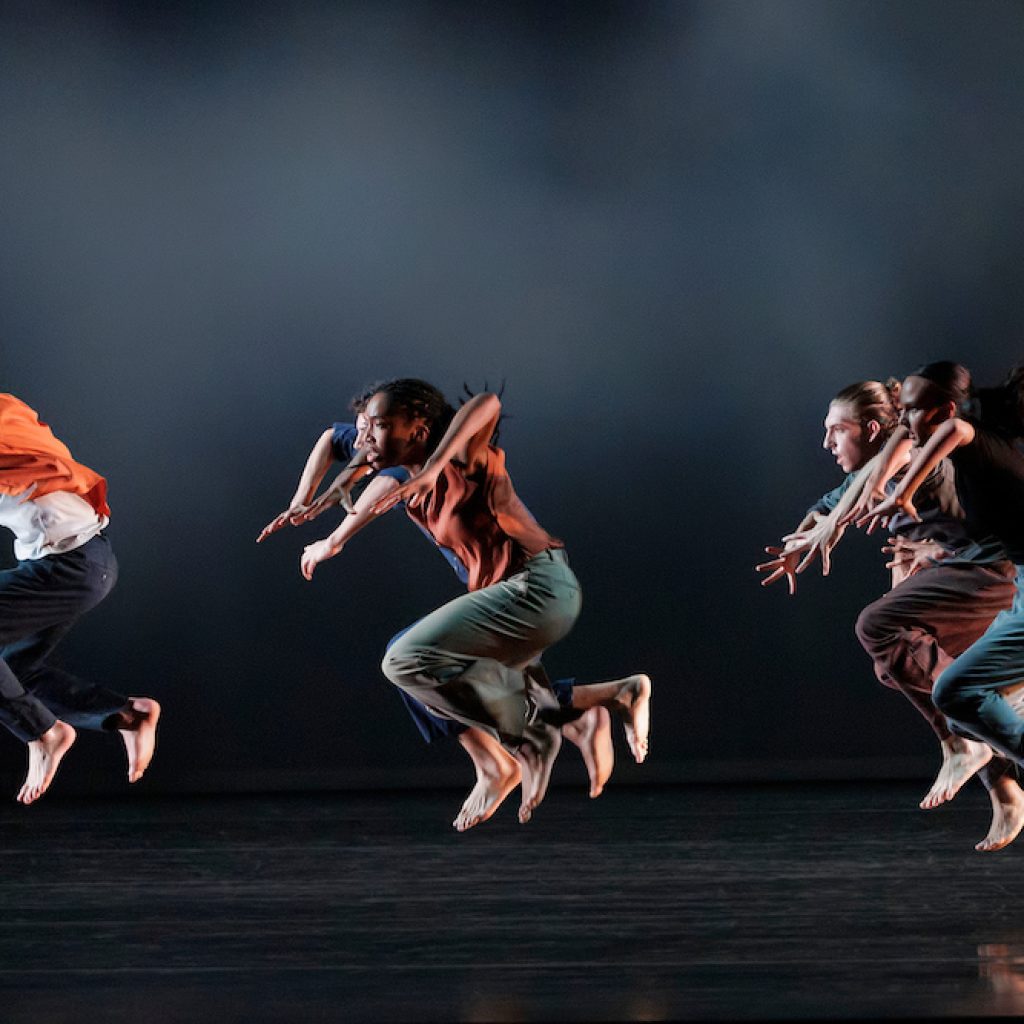
Graf Mack firmly believes that these policies and structures lead to a higher post-graduation success rate – and she has the numbers to back that up. “We had 21 Dance Division graduates last year, and they all ended up where they wanted to be; they all landed on their feet,” she notes. Beyond graduates booking jobs, she affirms that the Dance Division wants to see students “go on to be thought-leaders in the field, and through that send rings of positive change. We want to give them wings to fly.”
Juilliard moving forward: Open doors, no glass tower here
Graduates will move on, and Juilliard will remain. How will it evolve with the dance sector, city and world beyond it? The Dance Division is beginning to open up to those beyond its storied spaces, Graf Mack shares. “It’s important to me that we don’t live in a glass tower somewhere. We’re in the middle of NYC, and our doors are open,” Graf Mack asserts. Such newer efforts include the Juilliard Dance Experience, where non-student dancers can take class with Dance Division faculty members. “Relaxed Performances” are designed to welcome neurodivergent audience members.
Graf Mack is also seeking to build more touring opportunities for Dance Division students, so that audiences beyond New York City’s five boroughs can experience their work. “These students are second to none, and we want more people to be able to see that!” she says with a big smile. “We’re also growing our social media presence and dispelling myths about what conservatory training is,” Graf Mack says.
“We’re small but mighty, and we’re maintaining that. At the same time, we’re opening up what we do to more students.” Whatever the future may hold, Graf Mack hopes that readers are inspired to come see Spring Dances. “The performances are always electric. I’ll be on my feet clapping and the loudest one in the audience!”
The Juilliard Dance Division wil present Spring Dances 2024 on Saturday, March 30. For tickets, head to www.juilliard.edu/event/163661/spring-dances-2024.
By Kathryn Boland of Dance Informa.


